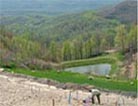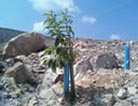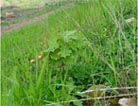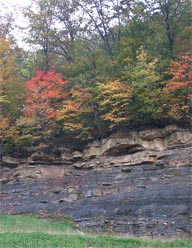Tennessee Tree Physiology Lab
The research in the Tree Physiology Lab aims to improve our understanding of the effects of the abiotic environment on tree growth and physiology. This work generally utilizes a whole-plant approach to physiology, and is focused on trees native to Tennessee forests, particularly hardwood species.
Environmental chemistry and soil physical properties are measured or manipulated to determine their relative effects on tree physiological systems, such as water relations or carbohydrate allocation. While most of this work is done at the level of the whole tree and tissue, we welcome collaboration with researchers in molecular biology, biochemistry, and ecology in order to gain a more complete picture of the complex physiological responses of trees.
The lab is located in room 127 of the Plant Biotechnology Building, on the University of Tennessee campus in Knoxville. Much of the research performed in the tree physiology lab utilizes greenhouse and controlled environment facilities located nearby. Field investigations may be carried out in state or national parks in Tennessee and on any of the ten research and education centers operated by UT AgResearch. Within Tennessee we have a wide variety of forest environments in which to study, ranging from bottomland hardwood forests in the western portion of the state to relic spruce/fir ecosystems at higher elevations in the nearby Smoky Mountains.
Projects, Programs and Studies:

Restoration of forested ecosystems by initiating the recovery of the native hardwood forest after mining.

Understanding the growth and function of seedlings will aid the recovery of the American chestnut.

A new study images root systems to determine how herbaceous plants compete with trees for water

Contact Information
Jennifer Franklin
Dept. of Forestry, Wildlife & Fisheries
274 Ellington Plant Sciences
Knoxville, TN 37996
Phone: (865) 974-2724
Email: jafranklin@utk.edu


